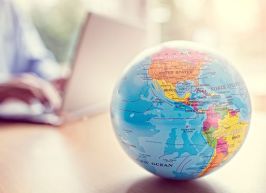Join getAbstract to access the summary!

Join getAbstract to access the summary!
Christopher Walker, Juan Pablo Cardenal, Jacek Kucharczyk, Grigorij Meseznikov and Gabriela Pleschova
Sharp Power
Rising Authoritarian Influence
NED, 2017
What's inside?
Soft power has evolved – and democracies must look sharp.
Recommendation
The world has changed a lot since Joseph Nye defined “soft power” in 1990. New media formats have enabled more insidious types of deception and disruption. Repressive regimes have seized upon these capabilities, allowing a new form of non-military coercion to emerge – “sharp power,” which weaponizes free speech and cultural openness. While liberal democratic societies look the other way, Russia and China continue to refine and expand their sharp power tools – legitimizing authoritarianism and advancing their own interests under cover of seemingly innocuous cultural, academic and economic initiatives. This 2017 report by the National Endowment for Democracy examines Russian and Chinese sharp power in Peru, Argentina, Poland and Slovakia. The conclusion: Civil society must rethink its understanding of “soft power” and learn to see through the subversive ploys chipping at the foundations of democracy. getAbstract recommends this report to anyone who cares about democracy and global politics.
Summary
About the Authors
Juan Pablo Cardenal is a researcher for the Center for the Opening and Development of Latin America’s Advisory Council. Jacek Kucharczyk is president of Poland's Institute of Public Affairs. Grigorij Mesežnikov is founder and president of Slovakia's Institute of Public Affairs. Gabriela Pleschová is a researcher at the University of Economics in Bratislava. Christopher Walker is vice president for studies and analysis at the National Endowment for Democracy (NED). Jessica Ludwig is a research and conferences officer at the NED’s International Forum for Democratic Studies.












Comment on this summary